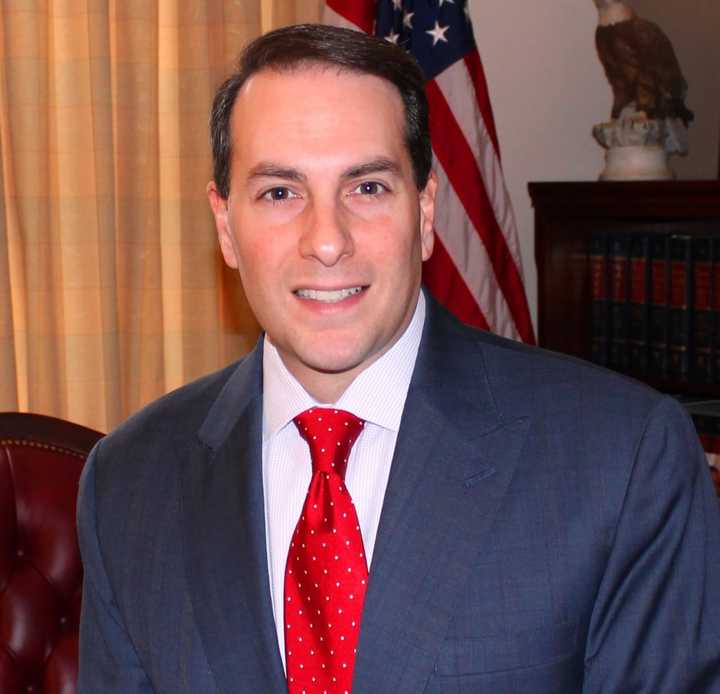Basile, who serves on the Stony Point Town Board as Deputy Supervisor and grew up in Clarkstown, recounts his experiences as senior press advisor to the U.S. Coalition Provisional Authority, where he served from 2003 to 2004, in his new book, "Tough Sell: Fighting The Media War In Iraq."
"That was a very critical time in the Iraq mission," Basile. "We transitioned from an exclusively military operation to an operation that blended civilians with the military and the needs of a civil society with an ongoing military operation."
While the war was initially popular, public opinion began to fade as the occupation looked to be going poorly, which Basile blames on the negative media coverage.
"The work that we did that was so critical has been lost to history," Basile said. "I consider that a real tragedy. We had a lot of brave men and women in uniform over there."
In the book, Basile said he takes a look at the media environment and the media bias he encountered.
"How we do communicate about war in the 21st century?" Basile said. "We're making an investment to execute this foreign policy that is going to take a long time to see through. The American people are owed an honest discussion about what is really going on. How do you do this in the age of 24-hour cable news?"
Basile was working for Gov. George Pataki when he joined the Bush campaign in 2000. After Bush was elected, Basie was director of communications for the EPA, working for Christie Whitman. After Whitman left, Basile found himself becoming a spokesman for the war.
"One day I was sitting in my office in Pennsylvania Avenue," Basile said. "Ten days later, I was sitting in 130-degree weather in Kuwait about to be transported to Baghdad. I felt this was the best way to serve my president."
The work of the Coalition Provisional Authority has been criticized but Basile argues a lot of accomplishments have been ignored. The currency was unified, the education system was rebuilt, the economy started growing and the role of women was increased, Basile said.
"We reformed the health care system," Basile said. "There was no more humanitarian crisis, we introduced new medicine and new methods to Iraq. Health care and essential services were used as weapons by the administration. Saddam Hussein would have a hospital with all of the latest equipment and children would be dying two miles down the road."
Basile admits mistakes were made and there were circumstances and challenges the government was not prepared for. Basile realized public opinion was starting to shift in the summer of 2003.
"I would take a lot of phone calls from reporters who would say to me 'why is it taking so long to rebuild the army or to get electricity up and running again?' There was a degree of impatience that started to appear," Basile said.
The failure to find weapons of mass destruction also caused the war to be viewed in a negative light.
"The administration spent too much time framing the rationale on weapons of mass destruction," Basile said. "They didn't manage expectations and given themselves room to maneuver."
With the fight against ISIS going on today, Basile said putting more troops in Iraq and establishing a permanent residency there should be considered. Basile admits people not agree with him and his book, but he hopes to start e a conversation.
"They can learn a little bit more that they didn't know from just reading the New York Times or watching clips of car bombs of Baghdad," Basile said. "This is a tribute to the work so many people did to the 27 million people in Iraq."
To purchase "Tough Sell," click here.
Click here to follow Daily Voice Stony Point and receive free news updates.
